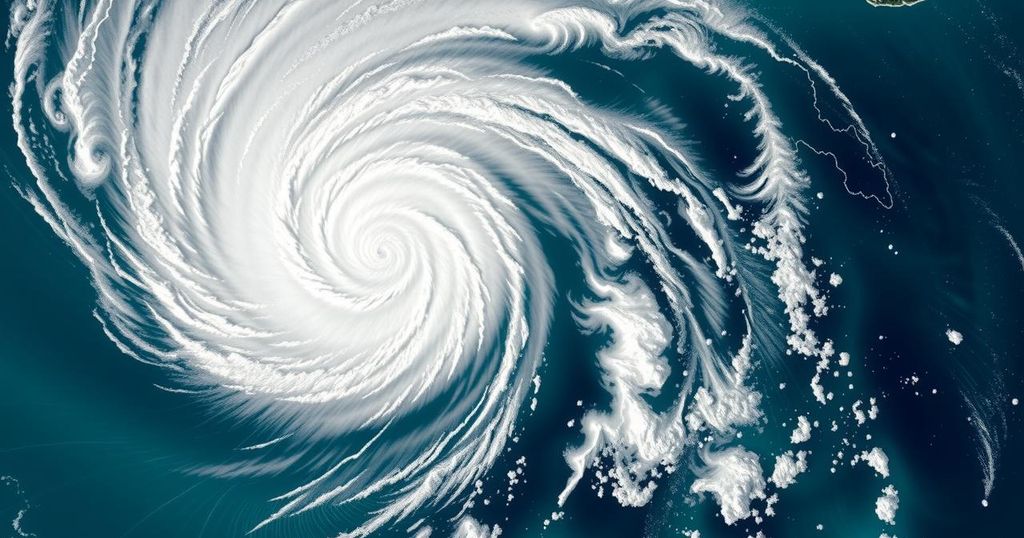Cyclone Chido has potentially caused several hundred deaths in Mayotte. With extensive damage reported, aid efforts are underway. The cyclone also poses risks to Mozambique as it progresses inland. Climate change is exacerbating the frequency and severity of such storms, highlighting the need for global support.
Cyclone Chido has caused catastrophic damage in the French territory of Mayotte, with officials reporting that the death toll may reach several hundred, potentially nearing 1,000. François-Xavier Bieuville, the Prefect of Mayotte, acknowledged the difficulty in obtaining accurate figures due to the cyclone’s extensive destruction, which struck the islands on Saturday. Initial reports confirmed at least 11 fatalities, however, this number is expected to rise substantially.
The cyclone, classified as a category 4 storm, produced winds exceeding 220 kph (136 mph) and also impacted neighboring regions, including the islands of Comoros and Madagascar. The devastation in Mayotte is unprecedented, marking the most destructive cyclone to hit the area in ninety years. French officials, including Interior Minister Bruno Retailleau, expressed deep concerns about the high casualty rates and severe damage to infrastructure, which includes destruction of the main hospital and airport.
As aid efforts ramp up, 1,600 officers from French law enforcement have been deployed to assist the affected population and prevent potential unrest. Support from the French government is intensifying, with additional rescue teams sent from Reunion and immediate supplies being transported by military aircraft. President Emmanuel Macron remains involved, and humanitarian focuses are shifting to aid Mozambique as Chido progresses inland, with emergency teams bracing for impacts across various sectors.
Cyclone season in this region, occurring from December to March, has seen increasing ferocity due to climate change. The occurrence of Cyclone Idai and Cyclone Freddy in previous years underscores an alarming trend of cyclones causing severe humanitarian crises in Southern Africa, thereby highlighting the necessity for support from wealthier nations in addressing climate change’s ramifications.
Cyclone Chido has emerged as a significant natural disaster impacting the Indian Ocean, particularly affecting Mayotte, a French territory with limited resources. This area has been subject to various intense cyclones during the December to March season, and recent climate data suggest an increase in severity and frequency of such storms. As countries with minimal contributions to global greenhouse gas emissions, territories like Mayotte face extreme vulnerabilities due to the repercussions of climate change, illustrating the urgent need for international resource allocation and support in disaster response and climate adaptation efforts.
In summary, Cyclone Chido has inflicted devastating damage on Mayotte, with initial reports suggesting hundreds of fatalities and widespread destruction. The cyclone exemplifies the increasing risk posed by severe weather events in the context of climate change. The ongoing humanitarian response will be crucial for the recovery of affected regions, emphasizing the need for continued international assistance to vulnerable nations facing such crises.
Original Source: www.pbs.org







